One of our top priorities here in the Up Front editorial offices is to get the really silly story out to the public. It’s rare that we get to follow up on one of these stories. People involved in them tend to want to lay low for quite a while.
But this time around, we get to follow up two stories right away. The first, reported in this column on Jan. 24, concerned a bizarre decision by the Facebook elite to censor a photo of a plastic Mardi Gras baby on the grounds that it wasn’t wearing a plastic diaper and was therefore obscene.
The day my column appeared, the Lafayette Daily Advertiser ran this headline: “The first known clothed king cake baby is heading to Facebook.”
This plastic baby doll came from King Cake Snob, the Louisiana company whose ads Facebook censored on the grounds that the photos of the little plastic babies featured “nudity.” Facebook later reversed its decision.
King Cake Snob is a site that enables people to vote for their favorite king cakes from across Louisiana. King Cake Snob released these comments about its special gift to Mark Zuckerberg:
“We partnered with Caluda’s King Cake, the 2018 King Cake Snob ‘Seal of Approval’ winner, to create a customized Facebook edition king cake, complete with blue sugar. Additionally, we’ve included the world’s first fully clothed king cake baby (wearing, of course, a Facebook branded T-shirt.)”
So now — if you work at Facebook, anyway — you have a chance to get a king cake baby with clothing on it. King Cake Snob got the last laugh in, by surrounding the baby with clothes by a host of little “nude” plastic babies, all lying in a big circle right on top of the cake.
As a rule, there’s no possibility of getting any come-uppance against a dumb as dirt bureaucrat. King Cake Snob managed it and managed it elegantly.
Update II: Get Me Anything Fried
The second story relates to the blandness of the food that’s most often ordered through Waitr in Louisiana. In a recent Up Front and another Lagniappe feature story, it was reported that in Lafayette, Lake Charles and Baton Rouge, 40 percent of the most-ordered items are generated by three retail chains that primarily deep fry battered chunks of chicken.
I thought I found a connection to this story in a new article from Time magazine: “Fried Food May Be Killing You, A New Study Says. Here Are the Worst Offenders.”
The researchers at the University of Iowa College of Public Health followed 100,000 American women between 50 and 79 from the 1990s until 2017. Those who ate at least one serving of fried food a day had an 8 percent higher chance of dying earlier than women who didn’t eat any fried food.
But the passage I thought really hooked into the earlier story about Waitr food was this: “Fried chicken and fried fish were more strongly linked to early death than other fried foods … The strength of the association may be because people simply consume more fried chicken or fish.”
The study claimed that “many restaurants may reuse oil when they cook foods like fried chicken,” and this practice “may increase the number of harmful byproducts transferred to the food.”
In this study, fried food consumption didn’t correspond to a higher risk of death from cancer. The study didn’t look at French fries. Some other studies have connected French fries to cancer and early death.
In general, researchers estimate that nearly 40 percent of Americans eat fast food on any given day. I think that with just a little effort, we could bump that percentage way up.
The Boat Left; The People Left
On Jan. 22, the Times-Picayune published an editorial titled, “Waiting for Roger Goodell to do the right thing.” It contained the passage: “NFL Commissioner Roger Goodell has the power to correct the horrible blown call at the end of the Saints-Ram NFC Championship game.” Well, I guess I have the power to sit outside my office and wait until I see the unicorn come strutting down the hall.
At the same time, the much less powerful N.O. Gambit wrote, “Enough is enough. @nflcommish Roger Goodell should step down, or be fired.”
Two days later, N.O. Mayor LaToya Cantrell wrote to Goodell, “expressing our deep dismay … and encouraging him to break his silence and step up for what’s right.” Even the governor wrote a letter to Goodell.
Things were just a leetle beet different in the rest of the country. On Jan. 24, MSN News had 17 headlines in its sports section. Not one of them related to the non-call or the NFC title game. In fact, not one of them related to the upcoming Super Bowl.
The non-call is a fantastic example of why I sometimes gripe about the blind worship of authority figures. NFL referees are just ordinary people who become authority figures when they go to a certain place at a certain time. There’s a generations-old tradition of refraining from challenging the decisions of referees — even when those decisions are boneheaded. Why? During a game, referees are authority figures. The fact that most parents and teachers instruct all children to treat all authority figures in all situations as if they were gods in human form doesn’t make the situation any less irksome.
I do need to make one proviso to these principles. In Lake Charles, I am the leading authority in the field of first-order non-Aristotelian mathematical logic. Should you find yourself working in this field, you will need to submit yourself completely to my will and all my pronouncements.
Please Leave Before We Kick You Out
Just because new technology enables you to do something, does that mean you should do it?
In Lafayette, the new cutting-edge tech making headlines is what local magazine The Current calls “the shared mobility rage … which involves free-standing, app-enabled bikes and scooters.” I’m won’t be surprised if I wake up one morning and find out I need to be app-enabled to get out of bed.
In Lafayette, two companies — Bird and Lime — have tried to put their “e-scooters” on city streets.
Depending on how state law is interpreted, e-scooters in Louisiana could be classified as motorized vehicles, and thus be regulated, as Rascals, mopeds and motorcycles are. That would mean they couldn’t be ridden on Louisiana streets without registration and titles.
In an email sent to Lafayette’s Mayor-President Joel Robideaux, Lime representatives suggested calling the scooters “motorized novelty vehicles” to get around the difficulty. The company earlier suggested that New Orleans city government do the same thing. But that city wound up banning the e-scooters.
The Current described Robideaux’s attitude toward Lime with the words “Please leave before we kick you out.” In letters delivered to Bird and Lime, Robideaux asked the companies to “stand down” in lieu of getting cease and desist orders. The University of Lafayette ordered that e-scooters on campus be parked in bike racks. Lime and Bird will be pulling 100 scooters from Lafayette. Other cities with a low threshold for the e-scooters have simply impounded them.
In the past, Lime and Bird were said to introduce their services into cities very quickly before people really knew what they were. They now seem to be changing their strategy to work out compromises with city governments.
At its earliest, state legislation that would allow the e-scooters on the street would be available in late spring.
Some people see the scooters as a nuisance or a driving hazard. They’re wary of the sight of youths zipping down crowded streets on small conveyances. But some see e-scooters as a good way to get quick and easy transportation for short trips. By providing that transportation, some think, scooters reduce the amount of traffic. I’m not interested enough to form an opinion.
A Big Green Teddy Bear
If you’ve been betting for years that there is such a thing as a pet alligator, you can start rounding up your money. On Jan. 24, the Associated Press ran a story about a Pennsylvania man named Joie Henny who is the master of one “Wally” — a 5-foot-long “emotional support alligator.”
Joie Henney, 65, says his alligator, Wally, who is registered with Pennsylvania as an emotional support animal, helps him deal with depression.
Henney says Wally “likes to snuggle and give hugs” and “rest his snout” on Henney’s legs. Wally, at present a 5-foot-long alligator, is also, Henney says, “a big teddy bear … He’s just like a dog.” Henney says Wally “is even afraid of cats.”
Wally is only 5 feet long because he’s just 4 years old. It’s thought that the gator could eventually grow to 16 feet.
“My doctor knew about Wally and figured it works, so why not?” said a lackadaisical Henney. Henney got his doctor’s approval for the support alligator because Henney considers the animal to be a good substitute for anti-depressants. I conjecture that however unpleasant anti-depressants might be, they’re a damn sight better than having an arm bitten off.
Henney also has a second, smaller rescue alligator named Scrappy.
The fact that Henney has these animals isn’t the whole story. He often takes Wally to “meet-and-greets” at senior centers. The AP reported that Henney told a woman at a senior center that Wally just “wants to be loved and petted.” I’m not sure that comments such as that will prevent senior center residents from being terror-stricken at the site of the big crawling teddy bear.
Henney may have some firm reasons for thinking he knows what he’s doing. From 1989 to 2000, he was the host of the Joie Henney’s Outdoors program on ESPN Outdoors. Still, I remember an NPR interview with an Australian who hosted an outdoors program in that country. When he was asked if a person could keep a crocodile as a pet, his simple reply was, “No, mate.”



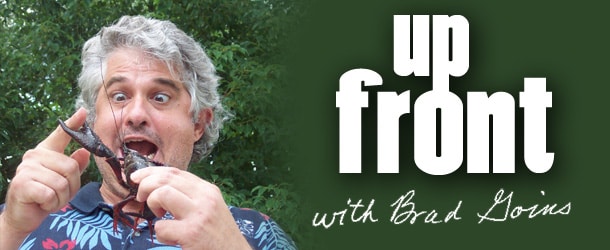
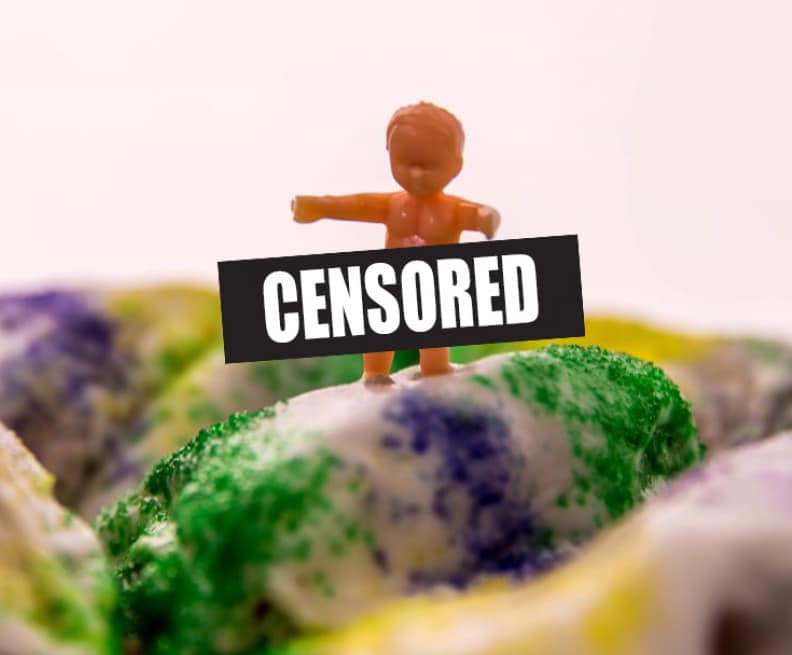
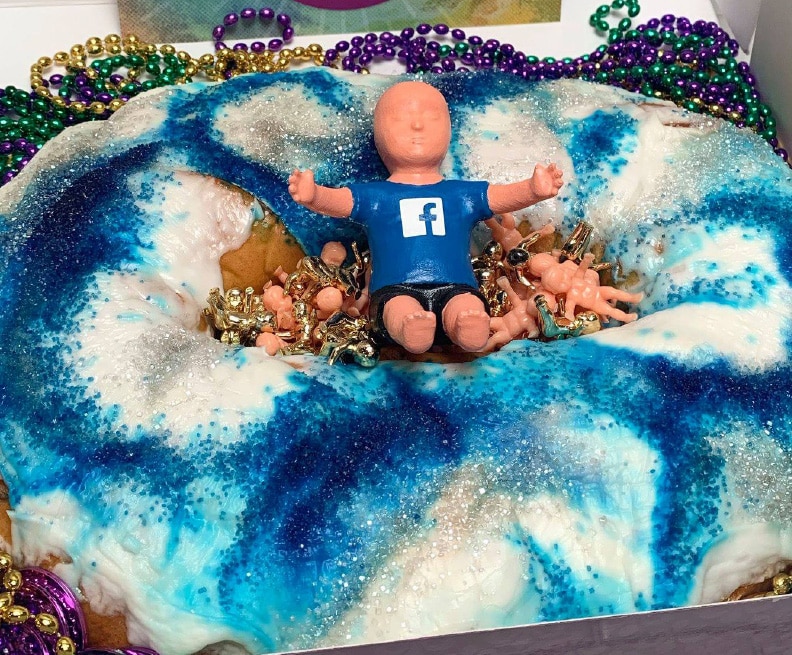

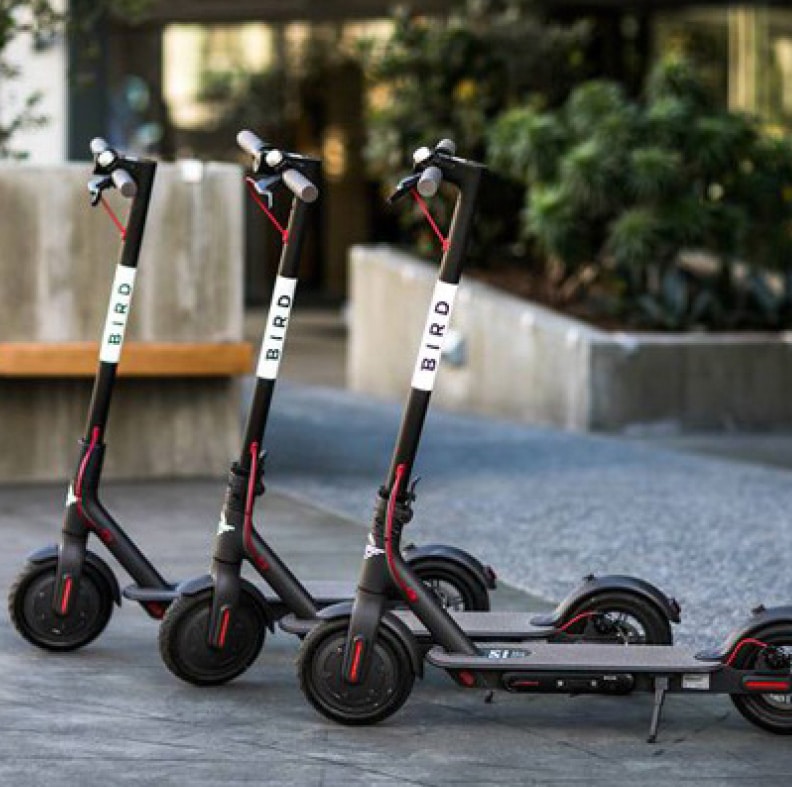
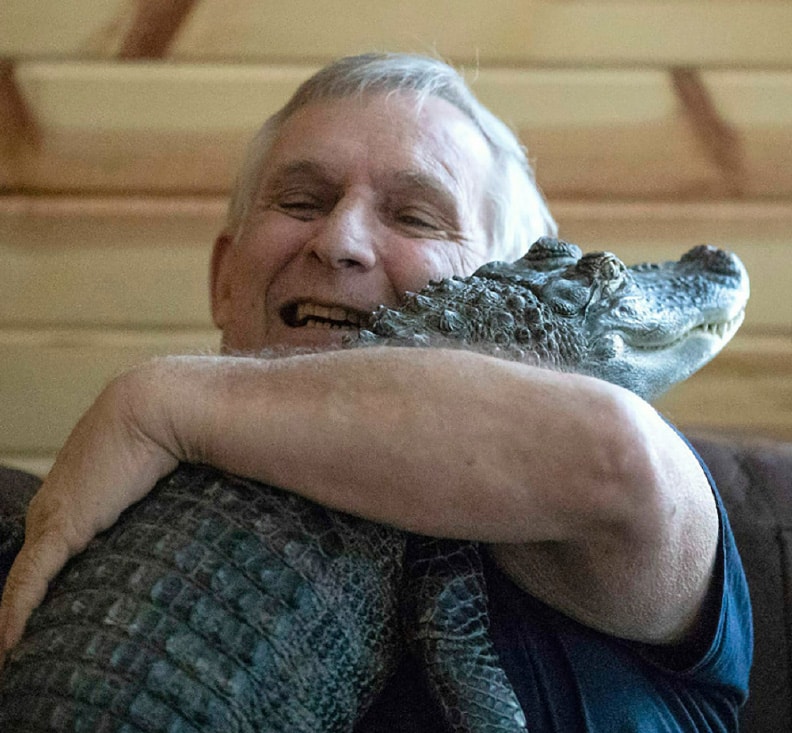











Comments are closed.